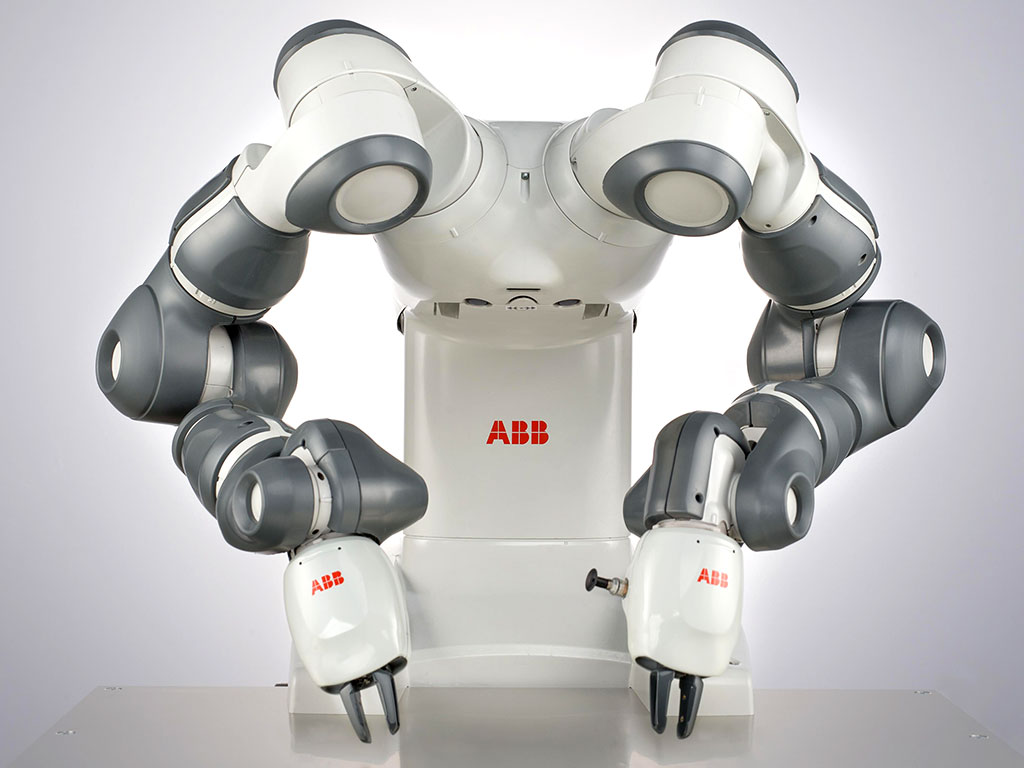
ABB YuMi Robot [Source: IEEE]
Charles R. Goulding and Ryan Donley discuss 3D printing experience in ABB’s business groups.
The June 30th Financial Times had an in-depth article indicating that the huge industrial ABB has a new CEO and will be decentralizing its 4 main groups into 18 separate businesses. The goal is to transform an ugly duckling into a swan. The 4 major groups are currently:
- Robotics
- Industrial Automation
- Motion
- Electrification
In theory, ABB is engaged in the type of businesses that should be well-positioned during these times. Björn Rosengren, ABB’s new CEO, posed the following question: “How can a company with such good technology, such good products, be underperforming for so long?”
Some of ABB’s business groups have extensive experience in 3D printing, which is presented below.
Robotics
Recently ABB introduced 3D printing technology and capabilities to their RobotStudio simulation and programming software. The introduction of additive manufacturing to this area allows more automated programming to be enabled for faster prototype production. The new 3D printing support module called PowerPac is capable of a variety of processes such as welding or printing with concrete or granules. The goal of the newly implemented 3D printing methods is to eliminate time-consuming programming and printing paths to fast track final project models.
Food and Beverage
ABB has expanded its food and beverage segment by exploring the possibilities additive manufacturing could open up to the culinary world. ABB is leveraging 3D printing to improve upon slow and low production rate foods that are custom to consumer personal dietary needs. Their 3D printing model creates a direct manufacturer and consumer order that can see a fight against food waste. ABB even plans to utilize unused products to reproduce them in a form that can be printed and prevent excessive waste.
Automation
ABB for years has been working with YuMi to develop single-arm and dual-arm robots to work side by side with humans in scenarios such as assembly and even as far as healthcare and pharmaceutical applications. Due to the expansion of the automated robotic applications, ABB and YuMi realized specialized fingers for the arms would have to be assembled in numerous complex geometries depending on the use. This is where an alternative came to utilize 3D printing where parts and production time would be significantly reduced as a result. ABB with the recent implementation of the PowerPac module could see more support towards these processes.
There is speculation that 50 percent of the company could be divested. With divestitures, the divested companies need to preserve licenses to 3D printing assets and other technologies important to their business.
The Research & Development Tax Credit
Enacted in 1981, the now permanent Federal Research and Development (R&D) Tax Credit allows a credit that typically ranges from 4%-7% of eligible spending for new and improved products and processes. Qualified research must meet the following four criteria:
- Must be technological in nature
- Must be a component of the taxpayer’s business
- Must represent R&D in the experimental sense and generally includes all such costs related to the development or improvement of a product or process
- Must eliminate uncertainty through a process of experimentation that considers one or more alternatives
Eligible costs include US employee wages, cost of supplies consumed in the R&D process, cost of pre-production testing, US contract research expenses, and certain costs associated with developing a patent.
On December 18, 2015, President Obama signed the PATH Act, making the R&D Tax Credit permanent. Beginning in 2016, the R&D credit can be used to offset Alternative Minimum tax for companies with revenue below $50MM and, startup businesses can obtain up to $250,000 per year in payroll tax cash rebates.
Conclusion
When a huge industrial transforms itself, many other companies will be impacted just as the GE breakup has. ABB has some excellent businesses that leading companies will covet.
